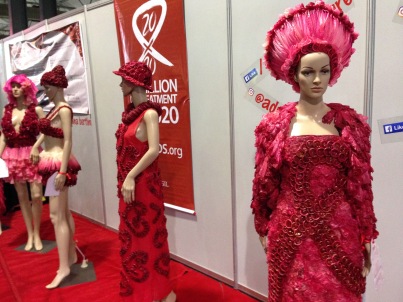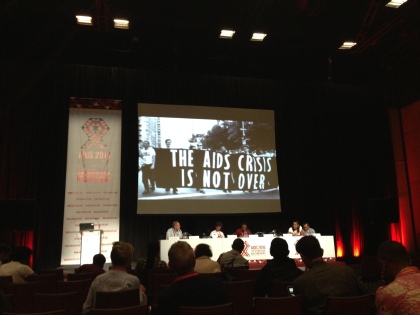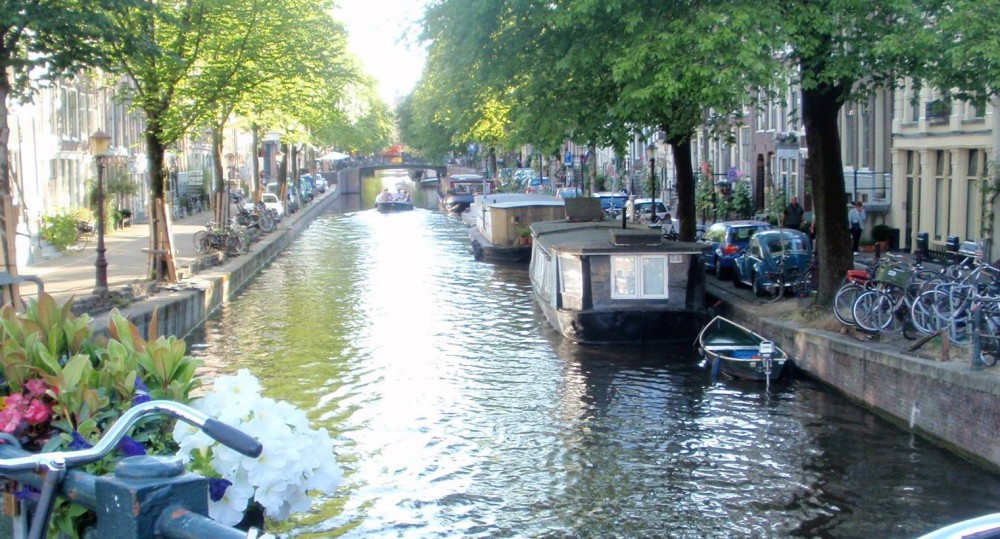In my past life working at Partners In Health, the bi-annual AIDS Conference was a Big Deal. In the months leading up to the conference, colleagues in Haiti or Lesotho prepared abstracts and posters, applied for scholarships, and planned travel. As logistics and operations folks, my team and I never attended IAS (the International AIDS Society sponsors the event, and we referred to it by this shorthand acronym), but we helped with the preparations, shipping materials to the conference site or buying cardboard tubes to transport posters.
For those of us who were not there, the stories coming back from the IAS conference were about solidarity and activism, collaboration and partnership. Reuniting with old friends, establishing new connections, and sharing successful interventions. Progress. Access.
In my current life in an ever-changing role for a Dutch organization, I found myself in Durban last week for the 2016 AIDS Conference. After so many years hearing about the event, it was a bit surreal to be there in person.
Durban hosted the conference in 2000 – the first time that an African country was chosen to host. It was a moment when millions of Africans were still fighting for access to HIV medications. It was also a period of AIDS denialism in South Africa. Both the President and the Health Minister publicly claimed that HIV did not cause AIDS, and promoted the use of herbal remedies. As a result of their policies, access to life-saving anti-retroviral drugs was delayed and hundreds of thousands of people died.

Condom fashion at its finest.
The history of the 2000 Durban IAS Conference is one centered on anger and protest, and many speakers invoked the memory of that difficult time. But now, 16 years later, the global landscape has changed dramatically. Over 17 million people worldwide receive the HIV drugs they need. South Africa has 3 million people on treatment – more than any other African country. There was much talk at the conference of ending AIDS in our lifetime – halting the epidemic and eliminating new infections by the year 2030. There were inspiring youth speakers and representatives from populations that are overlooked: transgendered individuals, injection drug users, sex workers. There is still passion and anger and activism, and to some degree I think that will exist as long as AIDS exists.
At the same time, there was a sense of tameness to the proceedings. At the end of a beautiful lecture by Edmund Cameron, the South African judge and HIV treatment advocate invited a group of activists to “come take over the stage”. While the message of the activists was important, I couldn’t help but think that 16 years ago, or even 10 years ago, the activists wouldn’t have waited for an invitation. They simply would have disrupted the event and taken over the stage.
On my final day at the conference, I attended a panel discussion about activism through the generations. The moderator did a brilliant job of framing the conversation, sharing memories of past struggles while evoking thoughtful responses from each of the panelists. During the Q & A, an American activist from ACT UP New York took the mic, and spoke (ok, yelled a little) about the lack of anger within the current HIV/AIDS movement. He talked about the IAS conference and other events being “eviscerated” by the presence of the pharmaceutical companies and government officials. He railed against the fact that the HIV movement is now “friendly” with the very people they used to fight. He talked about the importance of being unreasonable, and he made several unreasonable demands that he encouraged the HIV/AIDS community to take up.

As true today as it was in the 80s.
It was a stirring, necessary reminder that while AIDS may have moved from a health emergency to a manageable chronic disease, it is still a crisis. Access to medication, care for overlooked populations, and sufficient funding are not secured. These issues, and the people whose lives depend on the resolution of these issues, still need our attention. More, they need our action and, when necessary, our anger.
